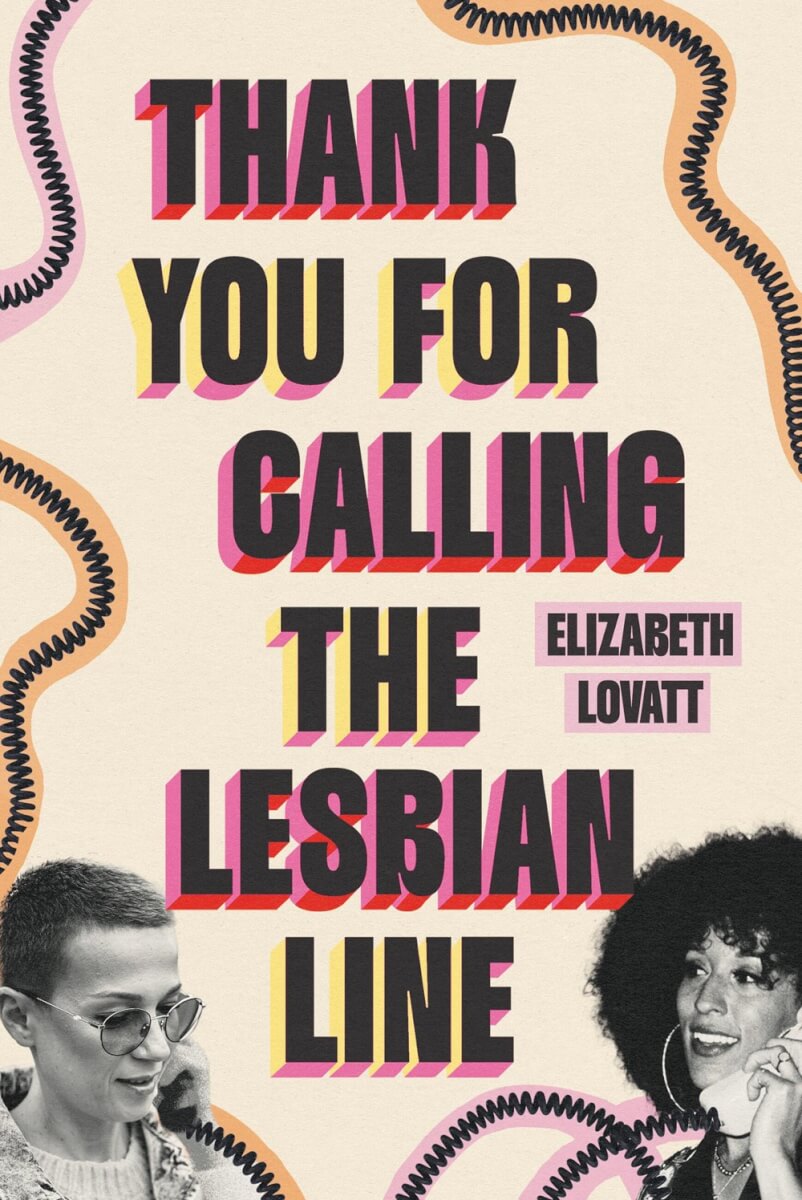Products You May Like
In Thank You for Calling the Lesbian Line, Elizabeth Lovatt uncovers an unbeatably cool archive: the 1993-1998 logbook of the Lesbian Line, a clandestine helpline provided as a support service to lesbians in London beginning in the 1970s. During its heyday, the line was so busy that folks often couldn’t get through.
Lovatt historicizes lesbianism in the 1980s and ’90s, speculating, for example, that many of the call center volunteers likely protested Section 28 of the 1988 Local Government Act, which referred to same-sex partnered parents as “pretended family relationships.” The lines between Lovatt and the callers blur, as the author eagerly explores lesbian history that will help her better understand herself and her community. “The logbook speaks to me,” she writes, “and I cannot help answering back. I cannot pretend I am doing this without a desire to understand something about myself: my own queerness, my own lesbian history.” The logbook is likewise full of desire. Callers phone secretively from hallways and basements, avoiding fathers and husbands, confessing feelings aloud for the first time and trying to figure out what’s next.
The logbook records powerful and emotional moments and reveals the hard work of the volunteers on the other end of the line. But they had very real limitations when it came to providing support to their callers. Many South Asian, Black and trans callers felt failed by the line’s mostly white volunteers. As Lovatt shows, the word lesbian, which comes from the Greek word lesbos, is laden with Westerness and whiteness. For Black women, this term did not apply to their experiences, and that exclusion manifested in queer spaces, including the line. Lovatt, who is white, spends time profiling organizations founded for and by lesbians of color during the years the Lesbian Line existed, and the book is richer for it.
Thank You for Calling the Lesbian Line is also noteworthy because it thoughtfully connects the Lesbian Line with the internet. Lovatt uses the wayback machine and other digital archives to show how the same questions that were posed over telephone moved first to websites and chat forums and then to other platforms (most recently, TikTok). In this way, she traces a cultural flow across several decades and generations of queer women who are, as they have been since culture began, finding their way to one another. Thank You for Calling the Lesbian Line is a fun, informative, heartfelt and passionate book of lesbian history that will appeal to queer folks and allies alike.
